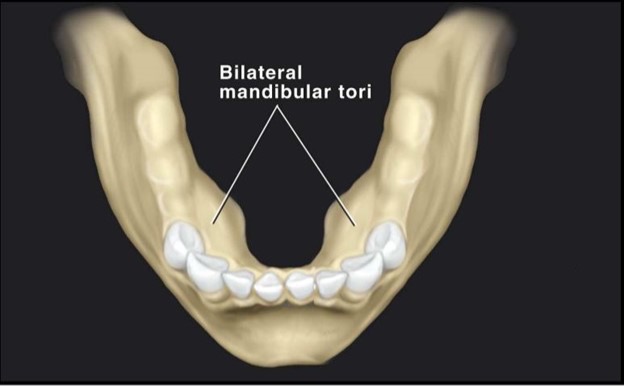Pharmacogenomics, also known as pharmacogenetics, is a field of study that combines pharmacology and genetics to understand how an individual’s genetic makeup influences their response to drugs. With the advancement of technology and the availability of genetic testing, pharmacogenomics has emerged as a promising approach to personalized medicine. By identifying genetic variations that affect drug response, pharmacogenomics aims to optimize treatment strategies and improve patient outcomes. In this blog post, we will delve into the world of pharmacogenomics, exploring its potential in revolutionizing drug therapy and paving the way for patient-centered care.
Unveiling Genetic Variations and Drug Response: The Promise of PharmacogenomicsThe human genome is made up of approximately 20,000 genes, each with its own unique sequence of DNA. These genes play a crucial role in determining an individual’s physical characteristics, such as eye color and height, as well as their susceptibility to diseases. However, they also influence how our bodies respond to medications. Genetic variations, or mutations, can alter the function of enzymes and proteins involved in drug metabolism, leading to differences in drug efficacy and toxicity among individuals.Pharmacogenomics aims to identify these genetic variations and understand how they impact drug response. This is achieved through the use of techniques such as genome-wide association studies (GWAS) and next-generation sequencing (NGS). GWAS involves scanning the entire genome of a large number of individuals to identify genetic markers associated with a particular trait or disease. NGS, on the other hand, allows for the sequencing of an individual’s entire genome, providing a more comprehensive view of their genetic makeup.The Role of Genetic Variations in Drug MetabolismOne of the key areas of focus in pharmacogenomics is drug metabolism. Our bodies have various enzymes responsible for breaking down drugs into smaller molecules that can be eliminated from the body. These enzymes are encoded by specific genes, and any variations in these genes can affect enzyme activity and ultimately, drug metabolism.For example, the gene CYP2D6 encodes an enzyme responsible for metabolizing a wide range of drugs, including antidepressants, antipsychotics, and painkillers. However, approximately 7% of the population carries a genetic variation that results in reduced enzyme activity, leading to slower drug metabolism. This can result in higher drug levels in the body, increasing the risk of adverse reactions and toxicity. On the other hand, some individuals may have multiple copies of the CYP2D6 gene, resulting in increased enzyme activity and faster drug metabolism. As a result, they may require higher doses of certain medications to achieve the desired therapeutic effect.The Impact of Genetic Variations on Drug ResponseApart from drug metabolism, genetic variations can also influence drug response through other mechanisms. For instance, variations in genes encoding drug transporters can affect how drugs are absorbed, distributed, and eliminated from the body. This can impact drug efficacy and toxicity, as well as the potential for drug-drug interactions.Moreover, genetic variations can also affect drug targets, such as receptors and enzymes, altering their function and response to medications. For example, a genetic variation in the gene encoding the beta-1 adrenergic receptor has been linked to reduced response to beta-blockers, a commonly used class of medications for heart disease and hypertension.Revolutionizing Treatment Strategies: How Pharmacogenomics Optimizes Drug SelectionTraditionally, drug selection has been based on factors such as age, weight, and medical history. However, with the growing understanding of the role of genetics in drug response, pharmacogenomics has the potential to revolutionize treatment strategies. By identifying genetic variations that affect drug response, healthcare providers can tailor drug therapy to an individual’s unique genetic makeup, leading to improved treatment outcomes.The Use of Pharmacogenomic Testing in Clinical PracticePharmacogenomic testing involves analyzing an individual’s genetic makeup to identify genetic variations that may impact their response to medications. This can be done through a simple blood or saliva sample, and the results can be used to guide drug selection and dosing. For example, a patient with a genetic variation that reduces the activity of the CYP2C19 enzyme may require a lower dose of the blood thinner clopidogrel to achieve the desired antiplatelet effect.Pharmacogenomic testing is currently being used in clinical practice for various medications, including antidepressants, antipsychotics, and cancer drugs. In some cases, it is recommended by regulatory bodies, such as the US Food and Drug Administration (FDA), for certain medications. However, there are still challenges to widespread implementation, such as the cost of testing and the need for healthcare providers to have knowledge and training in interpreting genetic test results.The Potential of Pharmacogenomics in Personalized MedicineThe ultimate goal of pharmacogenomics is to achieve personalized medicine, where treatments are tailored to an individual’s unique genetic makeup. This has the potential to improve treatment outcomes and reduce the risk of adverse reactions and drug ineffectiveness. Moreover, it can also lead to cost savings by avoiding the use of ineffective or potentially harmful medications.Pharmacogenomics is also being explored in the field of drug development, where genetic information can be used to identify potential drug targets and predict drug efficacy and toxicity. This can help pharmaceutical companies develop more effective and safer medications, leading to better treatment options for patients.Empowering Precision Medicine: The Role of Pharmacogenomics in Tailored Drug TherapyPrecision medicine, also known as personalized medicine, is an approach to healthcare that takes into account an individual’s unique genetic makeup, lifestyle, and environment to tailor treatment strategies. Pharmacogenomics plays a crucial role in precision medicine, providing valuable insights into how an individual may respond to medications and guiding treatment decisions.The Importance of Individualized TreatmentTraditional one-size-fits-all approaches to drug therapy may not be effective for all patients. For example, a medication that works well for one patient may cause severe side effects in another due to genetic variations. By incorporating pharmacogenomic testing into clinical practice, healthcare providers can identify these differences and tailor treatment plans accordingly.Moreover, certain populations may have a higher prevalence of specific genetic variations, leading to differences in drug response. For instance, individuals of Asian descent are more likely to carry a genetic variation that reduces the activity of the CYP2C19 enzyme, making them less responsive to certain medications, such as clopidogrel. By taking these factors into account, personalized medicine can improve treatment outcomes and reduce healthcare disparities.The Role of Pharmacogenomics in Cancer TreatmentCancer is a complex disease, and treatment strategies often involve a combination of chemotherapy drugs. However, these drugs can have varying efficacy and toxicity among individuals, making it challenging to determine the most suitable treatment plan. Pharmacogenomics offers a potential solution by identifying genetic variations that may impact drug response and guiding the selection of chemotherapy drugs.For example, the drug irinotecan is commonly used to treat colorectal cancer. However, approximately 10% of patients experience severe side effects, such as diarrhea and neutropenia, due to a genetic variation in the gene encoding the enzyme UGT1A1. By screening for this genetic variation, healthcare providers can adjust the dose of irinotecan or choose an alternative medication to minimize the risk of adverse reactions.Genetics of Drug Metabolism: Unraveling the Mechanisms Behind Individual VariabilityDrug metabolism is a complex process that involves various enzymes and proteins encoded by specific genes. Any variations in these genes can affect enzyme activity and ultimately, drug response. By understanding the genetics of drug metabolism, pharmacogenomics aims to unravel the mechanisms behind individual variability in drug response.The Role of Enzymes in Drug MetabolismEnzymes are proteins that act as catalysts for chemical reactions in the body. In drug metabolism, enzymes play a crucial role in breaking down medications into smaller molecules that can be eliminated from the body. These enzymes are encoded by specific genes, and any variations in these genes can alter enzyme activity, leading to differences in drug response among individuals.The most well-known enzymes involved in drug metabolism are the cytochrome P450 (CYP) enzymes. These enzymes are responsible for metabolizing a wide range of drugs, including antidepressants, antipsychotics, and painkillers. However, genetic variations in these enzymes can lead to differences in enzyme activity, resulting in variations in drug response.The Impact of Genetic Variations on Enzyme ActivityGenetic variations can affect enzyme activity in various ways. For example, a variation in the gene encoding the CYP2D6 enzyme may result in reduced enzyme activity, leading to slower drug metabolism. This can result in higher drug levels in the body, increasing the risk of adverse reactions and toxicity. On the other hand, some individuals may have multiple copies of the CYP2D6 gene, resulting in increased enzyme activity and faster drug metabolism. As a result, they may require higher doses of certain medications to achieve the desired therapeutic effect.Moreover, genetic variations can also affect how enzymes interact with drugs, altering their function and response to medications. For instance, a genetic variation in the gene encoding the CYP2C9 enzyme has been linked to reduced enzyme activity and an increased risk of bleeding in patients taking the blood thinner warfarin.Pharmacogenomic Testing: Paving the Way for Patient-Centered CarePharmacogenomic testing involves analyzing an individual’s genetic makeup to identify genetic variations that may impact their response to medications. This information can then be used to guide drug selection and dosing, leading to more personalized and patient-centered care.The Process of Pharmacogenomic TestingPharmacogenomic testing involves collecting a sample of DNA from an individual, typically through a blood or saliva sample. This sample is then analyzed using techniques such as GWAS or NGS to identify genetic variations that may impact drug response. The results of the test are then interpreted by healthcare providers to guide treatment decisions.The Benefits of Pharmacogenomic TestingPharmacogenomic testing offers several benefits for patients and healthcare providers. By identifying genetic variations that may impact drug response, it can help healthcare providers make more informed treatment decisions, leading to improved treatment outcomes. Moreover, it can also reduce the risk of adverse reactions and drug ineffectiveness, improving patient safety.For patients, pharmacogenomic testing can provide peace of mind, knowing that their treatment plan is tailored to their unique genetic makeup. It can also help them avoid the trial-and-error approach often associated with finding the right medication and dose.The Limitations of Pharmacogenomic TestingWhile pharmacogenomic testing has shown promising results, there are still limitations to its widespread implementation. One of the main challenges is the cost of testing, which may not be covered by insurance in some cases. Moreover, there is a lack of standardization in testing methods and interpretation of results, making it challenging for healthcare providers to incorporate this information into clinical practice.Genetic Insights into Adverse Drug Reactions: Minimizing Risks with PharmacogenomicsAdverse drug reactions (ADRs) are a significant cause of morbidity and mortality, accounting for approximately 5% of hospital admissions. These reactions can range from mild side effects, such as nausea and headache, to severe and life-threatening events, such as anaphylaxis and organ damage. Pharmacogenomics offers valuable insights into the genetic factors that may contribute to ADRs, allowing for their prevention or early detection.The Role of Genetics in Adverse Drug ReactionsGenetic variations can influence an individual’s susceptibility to ADRs in various ways. For example, a genetic variation in the gene encoding the enzyme TPMT has been linked to an increased risk of bone marrow suppression in patients taking the immunosuppressant drug azathioprine. By identifying this genetic variation through pharmacogenomic testing, healthcare providers can adjust the dose of azathioprine or choose an alternative medication to minimize the risk of ADRs.Moreover, genetic variations can also affect how individuals metabolize drugs, leading to differences in drug levels in the body and increasing the risk of toxicity. For instance, a genetic variation in the gene encoding the CYP2C19 enzyme has been linked to an increased risk of bleeding in patients taking the blood thinner clopidogrel.The Potential of Pharmacogenomics in Preventing ADRsBy identifying genetic variations that may increase the risk of ADRs, pharmacogenomics has the potential to prevent these reactions from occurring. This is achieved by adjusting drug selection and dosing based on an individual’s genetic makeup, reducing the likelihood of adverse reactions.Moreover, pharmacogenomic testing can also be used to identify individuals who are at a higher risk of developing ADRs, allowing for closer monitoring and early detection of any potential reactions. This can help healthcare providers intervene before the reaction becomes severe and potentially life-threatening.Overcoming Drug Ineffectiveness: The Promise of Pharmacogenomics in Optimizing DosingDrug ineffectiveness, also known as treatment failure, occurs when a medication does not produce the desired therapeutic effect in an individual. This can be due to various factors, including genetic variations that affect drug metabolism and response. Pharmacogenomics offers a potential solution by identifying these genetic variations and optimizing drug dosing to achieve the desired treatment outcomes.The Impact of Genetic Variations on Drug EfficacyGenetic variations can influence drug efficacy in various ways. For example, a variation in the gene encoding the CYP2D6 enzyme may result in reduced enzyme activity, leading to slower drug metabolism. This can result in lower drug levels in the body, reducing the effectiveness of the medication. On the other hand, some individuals may have multiple copies of the CYP2D6 gene, resulting in increased enzyme activity and faster drug metabolism. As a result, they may require higher doses of certain medications to achieve the desired therapeutic effect.Moreover, genetic variations can also affect how drugs interact with their targets, such as receptors and enzymes, altering their function and response to medications. For instance, a genetic variation in the gene encoding the beta-1 adrenergic receptor has been linked to reduced response to beta-blockers, a commonly used class of medications for heart disease and hypertension.The Potential of Pharmacogenomics in Optimizing DosingBy identifying genetic variations that may impact drug efficacy, pharmacogenomics can help healthcare providers optimize drug dosing to achieve the desired treatment outcomes. This is achieved by adjusting drug selection and dosing based on an individual’s genetic makeup, ensuring that they receive the right dose of medication for their specific needs.Moreover, pharmacogenomic testing can also be used to monitor drug levels in the body, allowing for adjustments in dosing if necessary. This can help prevent drug ineffectiveness and improve treatment outcomes for patients.Exploring Pharmacogenomic Applications: From Drug Discovery to Clinical PracticePharmacogenomics has a wide range of applications, from drug discovery to clinical practice. By understanding the role of genetics in drug response, researchers can identify potential drug targets and predict drug efficacy and toxicity. This can help pharmaceutical companies develop more effective and safer medications, leading to better treatment options for patients.Moreover, pharmacogenomics is also being used in clinical practice to guide treatment decisions and optimize drug therapy. By identifying genetic variations that may impact drug response, healthcare providers can tailor treatment plans to an individual’s unique genetic makeup, improving treatment outcomes and reducing the risk of adverse reactions and drug ineffectiveness.The Potential of Pharmacogenomics in Drug DiscoveryPharmacogenomics has the potential to revolutionize the drug discovery process by providing valuable insights into how an individual’s genetic makeup influences their response to medications. By understanding the genetics of drug metabolism and response, researchers can identify potential drug targets and predict drug efficacy and toxicity. This can help pharmaceutical companies develop more effective and safer medications, leading to better treatment options for patients.Moreover, pharmacogenomics can also be used to identify individuals who are more likely to respond to a particular medication, allowing for targeted drug development. This can help reduce the time and resources needed for clinical trials, leading to faster drug approval and availability for patients.The Role of Pharmacogenomics in Clinical PracticeIn addition to its potential in drug discovery, pharmacogenomics is also being used in clinical practice to guide treatment decisions and optimize drug therapy. By identifying genetic variations that may impact drug response, healthcare providers can tailor treatment plans to an individual’s unique genetic makeup, improving treatment outcomes and reducing the risk of adverse reactions and drug ineffectiveness.Moreover, pharmacogenomic testing can also be used to monitor drug levels in the body, allowing for adjustments in dosing if necessary. This can help prevent drug ineffectiveness and improve treatment outcomes for patients. Additionally, pharmacogenomics can also be used to identify individuals who are at a higher risk of developing ADRs, allowing for closer monitoring and early detection of any potential reactions.The Ethical and Regulatory Considerations of Pharmacogenomics ImplementationWhile pharmacogenomics offers promising potential in improving patient outcomes, there are also ethical and regulatory considerations that need to be addressed. These include issues such as privacy, informed consent, and access to testing.Privacy ConcernsPharmacogenomic testing involves the collection and analysis of an individual’s genetic information, which can be considered highly sensitive. As a result, there are concerns about how this information will be used and protected. For example, there may be fears of discrimination based on genetic predispositions to certain diseases or drug response. To address these concerns, regulations have been put in place to protect the privacy of individuals undergoing pharmacogenomic testing.Informed ConsentInformed consent is a crucial aspect of pharmacogenomic testing, as it allows individuals to make an informed decision about whether or not to undergo testing. This includes understanding the potential benefits and limitations of testing, as well as the implications of the results. Healthcare providers must ensure that individuals have all the necessary information before proceeding with testing.Access to TestingOne of the main challenges in implementing pharmacogenomics in clinical practice is the availability and accessibility of testing. Currently, pharmacogenomic testing may not be widely available or covered by insurance, making it difficult for some individuals to access this technology. As pharmacogenomics becomes more integrated into healthcare, efforts must be made to ensure equitable access to testing for all patients.ConclusionPharmacogenomics holds great promise in revolutionizing treatment strategies and improving patient outcomes. By understanding the role of genetics in drug response, healthcare providers can tailor treatment plans to an individual’s unique genetic makeup, optimizing drug selection and dosing. This can help minimize risks of adverse reactions and drug ineffectiveness, leading to more effective and personalized treatment for patients. However, there are also ethical and regulatory considerations that need to be addressed to ensure the responsible implementation of pharmacogenomics in clinical practice. With continued research and advancements in technology, pharmacogenomics has the potential to transform the future of medicine and empower precision healthcare.



